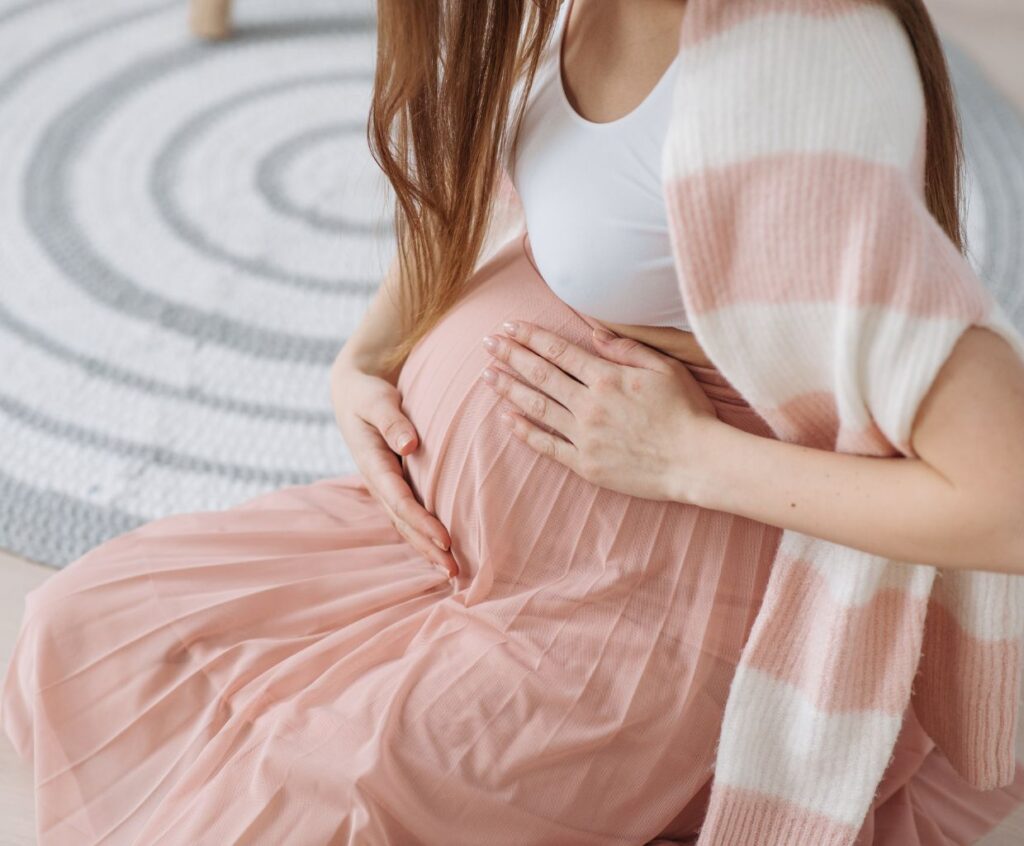When Do Pregnancy Symptoms Start: Early Signs and What to Expect
Are you wondering when pregnancy symptoms start? It’s a common question among women who suspect they might be pregnant! While every woman is different, some early signs can give you a clue if you should take a pregnancy test or consult your healthcare provider.

Early Signs of Pregnancy
The early signs of pregnancy can vary from woman to woman, but here are some common symptoms that many women experience:
-
- Missed period: This is often the first sign that prompts women to suspect pregnancy. However, it’s important to note that a missed period can also have other causes, such as stress or hormonal imbalances.
-
- Implantation bleeding: Some women might experience light spotting or bleeding when the fertilized egg attaches to the uterine lining. This usually occurs 10 to 14 days after conception and is often mistaken for a light period.
-
- Tender or swollen breasts: Hormonal changes can cause your breasts to feel sore, tender, or swollen. This symptom is similar to what some women experience before their period but can be more pronounced during early pregnancy.
-
- Nausea and vomiting: Often referred to as morning sickness, these symptoms can occur at any time. Some women might experience mild nausea, while others may have severe vomiting episodes. Morning sickness typically starts around the 6th week of pregnancy.
-
- Increased urination: Many women make more trips to the bathroom than usual. This is due to hormonal changes and increased blood flow to the pelvic area.
-
- Fatigue: Feeling tired or exhausted is a common early pregnancy symptom. Hormonal changes, increased blood production, and the physical demands of pregnancy can all contribute to this feeling of fatigue.
What to Expect
It’s important to remember that every pregnancy is unique, and not all women will experience the same symptoms or severity. Some women may have a relatively symptom-free first trimester, while others may experience a wide range of discomforts.
If you suspect you might be pregnant, it’s best to take a home pregnancy test or consult your healthcare provider for a definitive answer. They can guide, support, and help you navigate the exciting pregnancy journey.
Are there any specific symptoms that manifest earlier than others during pregnancy?
During pregnancy, different women may experience various symptoms at different times. However, some common early symptoms of pregnancy include:
1. Missed period: This is usually the first and most common sign of pregnancy.
2. Nausea and vomiting: Often referred to as morning sickness, it can occur at any time of the day.
3. Breast changes: Increased sensitivity, tenderness, and enlargement of breasts may be experienced.
4. Fatigue: Feeling tired and exhausted is a common early pregnancy symptom.
5. Frequent urination: Increased blood flow to the kidneys can lead to more frequent trips to the restroom.
6. Food cravings or aversions: Some women may experience specific food cravings or develop an aversion to certain smells and tastes.
7. Mood swings: Hormonal changes during pregnancy can lead to mood swings and emotional changes.
8. Mild pelvic cramping or spotting: Some women may experience mild cramping or light spotting due to the implantation of the fertilized egg in the uterus.
It is important to note that these symptoms can vary from woman to woman, and some may not experience any symptoms. If you suspect you may be pregnant, taking a pregnancy test or consulting with a healthcare provider for confirmation is recommended.
Are there any reliable methods or tests to confirm pregnancy symptoms at an early stage?
Yes, there are several reliable methods and tests to confirm pregnancy symptoms at an early stage. The most common method is a home pregnancy test, which detects the human chorionic gonadotropin (hCG) in urine. These tests can be taken as early as a few days before a missed period, but they are generally more accurate if taken a week after a missed period.
Another reliable method is a blood test, which can detect hCG levels even earlier than a urine test. Blood tests are more accurate and detect pregnancy as early as 6-8 days after ovulation.
In addition to these tests, some early signs and symptoms of pregnancy include missed periods, breast tenderness, nausea or vomiting (morning sickness), frequent urination, fatigue, and mood swings. However, it’s important to note that other factors can cause these symptoms, so a medical test is needed to confirm pregnancy.
What are the early signs of pregnancy that indicate the start of pregnancy symptoms?
Early signs of pregnancy can vary from person to person, but some common early signs include:
1. Missed period: One of the first and most obvious signs of pregnancy is a missed period. However, it’s important to note that other factors, such as stress, illness, or hormonal imbalances, can also cause a missed period.
2. Breast changes: Many women experience breast changes early in pregnancy. This may include tenderness, swelling, or darkening of the areolas.
3. Fatigue: Feeling exhausted is a common early sign of pregnancy. Hormonal changes and increased blood production can contribute to feelings of fatigue.
4. Nausea or morning sickness: Some women experience nausea, often accompanied by vomiting, particularly in the mornings. However, morning sickness can occur at any time of the day.
5. Increased urination: Pregnant women may notice an increased need to urinate due to hormonal changes and increased blood flow to the kidneys.
6. Food aversions or cravings: Some women experience changes in their food preferences, developing aversions to certain smells or tastes or having solid cravings for specific foods.
7. Mood swings: Hormonal changes during early pregnancy can cause mood swings, irritability, or heightened emotional sensitivity.
It’s important to note that these symptoms can also be caused by factors other than pregnancy. If you suspect you may be pregnant, taking a pregnancy test or consulting with a healthcare professional for confirmation is recommended.

